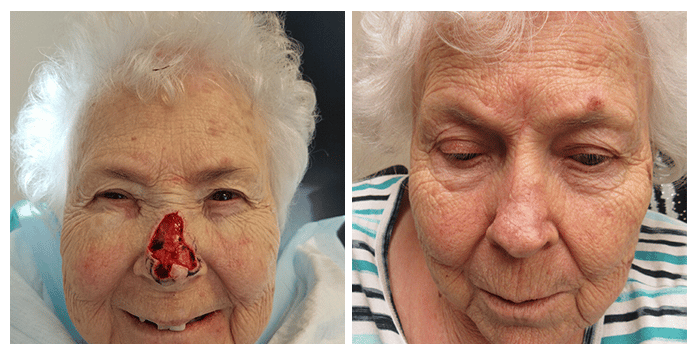Skin Cancer Treatmentin Portland, Oregon
What is Skin Cancer Treatment?
When a skin growth shows signs of cancerous transformation, removal (excision) is recommended. There are a few ways that skin cancer removal can be performed, and is often based on the depth, severity, and type of cancer.
Skin Cancer Treatment?
Excision
Excision can be used for most types of skin cancer. To start, Dr. Fichadia will numb the affected area of the skin. Then, the cancerous section of the tissue is separated from the surrounding skin with a sharp scalpel, along with a small perimeter of healthy skin around it. This is done to ensure that all of the cancerous cells are removed. This is the most commonly used method for removing skin cancer since it is very quick and also has the smallest chance of scarring.
Most skin cancers are removed surgically, by a plastic surgeon or a dermatologist. If the cancer is small, the procedure can be done quickly and easily, in an outpatient facility or the physician’s office, using local anesthesia. The procedure may be a simple excision, which usually leaves a thin, barely visible scar.
If the cancer is large, however, or if it has spread to the lymph glands or elsewhere in the body, major surgery may be required. Other possible treatments for skin cancer include cryosurgery (freezing the cancer cells), radiation therapy (using x-rays), topical chemotherapy (anti-cancer drugs applied to the skin), and Mohs surgery, a special procedure in which the cancer is shaved off one layer at a time. (Mohs surgery is performed only by specially trained physicians and often requires a reconstructive procedure as follow-up.) We realize that a skin cancer diagnosis can provoke anxiety, and do our best to accommodate surgical removal in a timely manner. In cases of reconstruction after Mohs surgery, we work closely with your Mohs surgeon to ensure timely reconstruction.
Results & Recovery
After any type of skin cancer removal, you will need to take special care of the affected area site. Depending on the extent of the removal, you may need to have sutures removed or some sort of liquid adhesive to keep it intact while it heals.
If you are concerned that you may have an irregular or cancerous growth on your skin, contact our Portland office today to schedule a consultation for skin cancer removal.
 (503) 488-2344
(503) 488-2344






